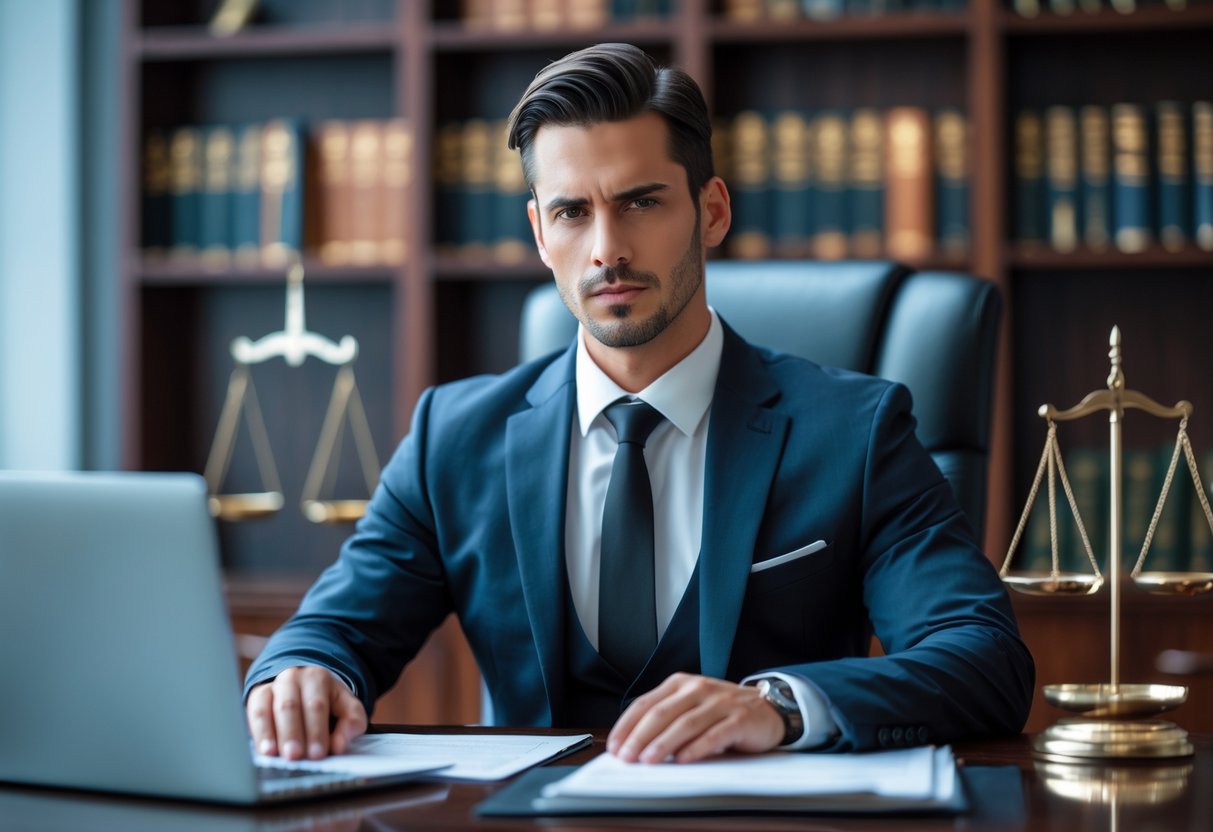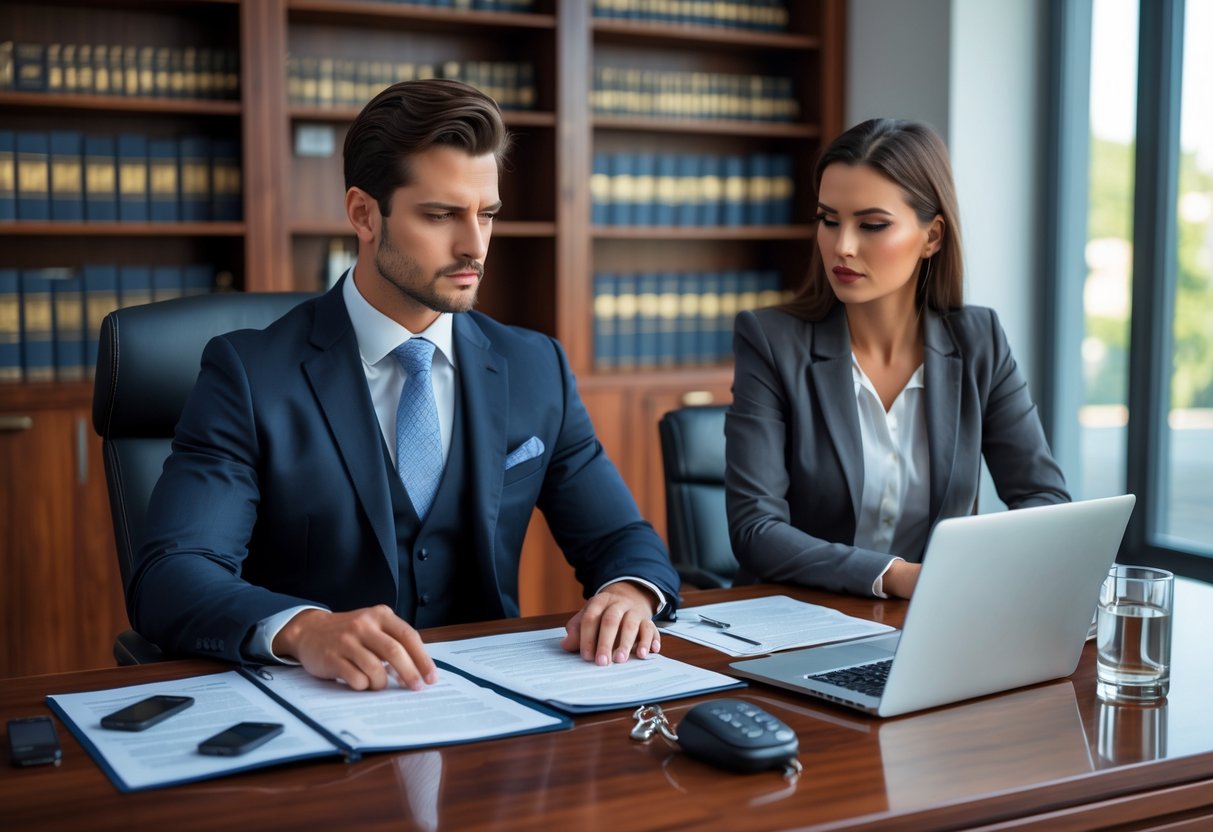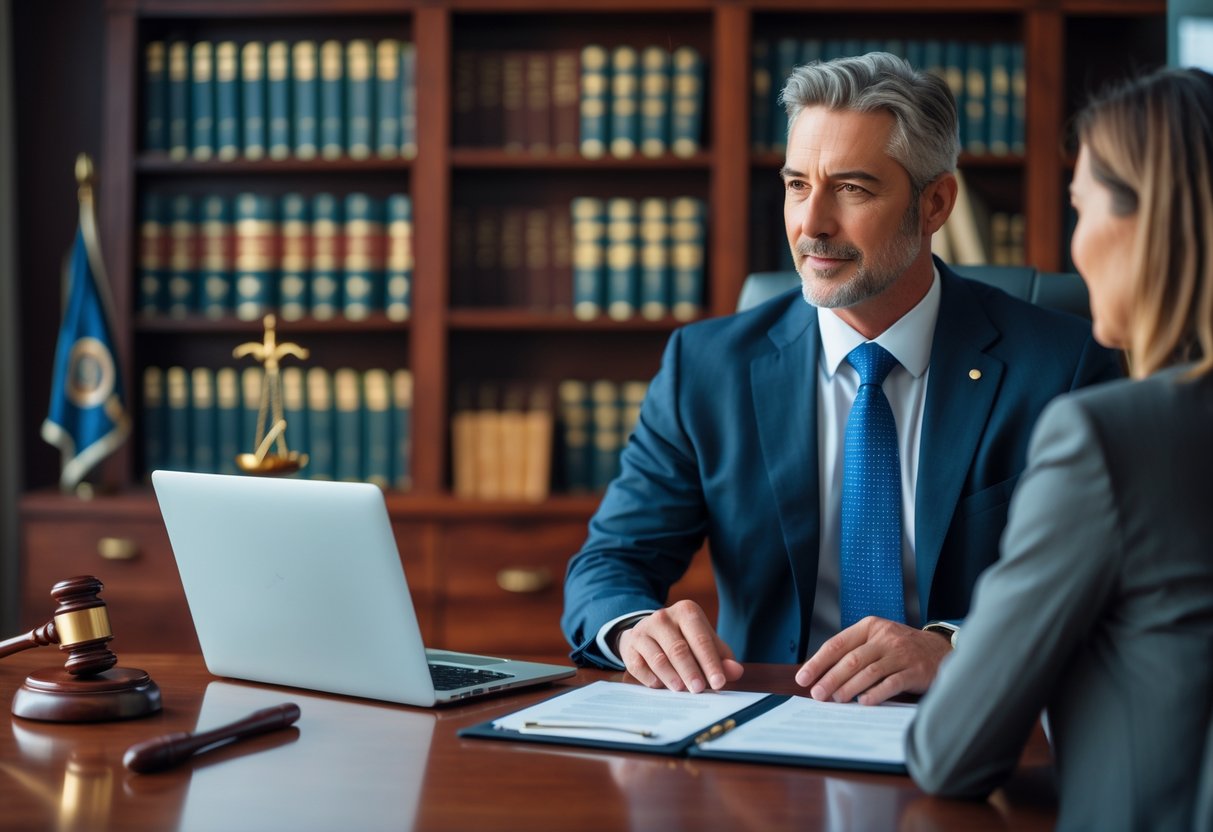Active listening is a key skill in the field of criminal defense. It helps us understand not only what is being said but also the emotions and intentions behind the words. This can make a crucial difference when we work with clients, ensuring that their stories are heard and accurately represented. By actively listening, we can uncover details that might be missed, which can prove essential in building a strong defense.
In the fast-paced world of criminal justice, listening with intention can strengthen our relationships with clients and improve trust. When clients feel heard, they are more likely to share critical information. This can lead to a deeper insight into their situation, which benefits both them and us. It’s a practice that law enforcement and legal professionals should value and cultivate.
As we look at the role of active listening, we will see its impact on the outcomes of criminal cases. By engaging with clients empathetically and attentively, we not only show respect, but we also gain a tactical advantage. This skill is not just about gathering facts—it’s about truly connecting and making informed decisions.
Fundamentals of Active Listening in Criminal Defense

In criminal defense, active listening involves a blend of understanding verbal and nonverbal communication. This skill helps us better connect with our clients and gather essential information.
Defining Active Listening and Its Components
Active listening means more than just hearing words. It involves paying attention, showing empathy, and responding thoughtfully. We often use techniques such as repeating phrases or summarizing points to show we’re engaged.
Our goal in criminal defense is to create a safe space where clients feel heard. This requires a combination of attention to detail, openness, and an emphasis on client feelings and viewpoints.
Having a structured approach enhances our ability to learn important facts, which can be crucial for building a strong defense.
The Importance of Nonverbal Communication
Nonverbal cues, like facial expressions and body language, are essential parts of active listening. They provide insight into a client’s emotional state and can reveal underlying concerns.
We focus on eye contact and read gestures to ensure we understand the full message. Our own body language should also reflect engagement and sincerity, encouraging clients to share more openly.
Additionally, monitoring the client’s tone of voice helps us gauge emotions and adjust our responses sensitively.
Enhancing Verbal Communication and Open-Ended Questions
Verbal communication in active listening involves clear, concise language that encourages open dialogue. We frequently use open-ended questions to prompt clients to share more detailed information.
Questions that start with “how,” “what,” and “why” help uncover deeper insights. This technique ensures that clients elaborate on their experiences and perspectives.
Our aim is to foster an environment where communication flows naturally, allowing us to gather crucial facts that aid legal strategies.
Active Listening in Practice for Defense Attorneys

In criminal defense, active listening is crucial for building trust and effectively handling cases. It involves empathy and adaptability, enhanced communication, and gathering information.
Building Rapport with Clients
Building a strong rapport with clients begins with active listening. We carefully listen to their concerns, showing genuine empathy and understanding. This helps in gaining their trust and creating a comfortable atmosphere.
Our ability to read verbal and non-verbal cues is key. By noting tone and body language, we respond in ways that make our clients feel heard and valued. Effective communication is not just about speaking; it’s about listening and adapting as well.
By practicing interpersonal skills, we lay the foundation for a collaborative relationship. This ongoing interaction is essential for understanding our clients’ needs and representing them effectively.
Information Gathering and Critical Thinking
Active listening enhances our information-gathering process. When clients share their stories, we pay close attention, ensuring every detail is recorded accurately. Asking the right questions leads us to important insights.
Critical thinking comes into play as we analyze this information. We connect details to build a comprehensive case. Our focus allows us to understand the nuances and spot key points others might miss.
This methodical approach ensures we gather all necessary data and use it strategically. By listening and thinking critically, we craft strong defenses and effectively advocate for our clients.
Adapting Communication in Dynamic Situations
In the courtroom or meetings, situations can change rapidly. Our ability to adapt our communication style is vital. Through active listening, we pick up on shifts in tone and demeanor, enabling us to respond appropriately.
Being adaptable means we can modify arguments or strategies in real-time. We leverage empathy to understand different perspectives, making our communication more persuasive and relatable.
Our readiness to change course as needed supports effective interpersonal communication. In dynamic environments, active listening ensures we remain alert and responsive, maintaining control and confidence in our defense strategies.
Core Skills Development and Training
Active listening in criminal defense requires both professional growth and personal development. To excel, we focus on honing interpersonal skills and understanding the distinction between soft and hard skills.
Importance of Ongoing Training and Coaching
Ongoing training and coaching are crucial for maintaining and improving our skills. Criminal defense involves constant interaction with various stakeholders like police officers and clients. Professional training helps us stay updated on protocols and practices.
Training programs focused on active listening teach us not just to hear words, but also to grasp underlying emotions. Regular mentoring and coaching sessions ensure our skills remain sharp.
We must commit to continual learning. This dedication enables us to be more effective in our roles. Through workshops and seminars, we cultivate skills vital for adapting to different situations.
Developing Soft Skills and Emotional Intelligence
Soft skills and emotional intelligence are essential for effective legal representation. We must communicate clear information while showing compassion to clients. Understanding their feelings and concerns is vital.
Active listening enhances our ability to connect. We need to grasp both verbal and non-verbal cues, which aids in building trust. Emotional intelligence helps us manage our responses and adjust to client emotions.
Developing these abilities often involves role-playing exercises and feedback from peers. By focusing on these areas, we can offer compassionate and effective legal counsel. Developing personal rapport with our clients strengthens their trust in us.
Hard Skills Versus Soft Skills in Criminal Defense
In criminal defense, both hard and soft skills play unique roles. Hard skills include legal research, document preparation, and courtroom presentation. These are acquired through academic training and professional practice.
On the other hand, soft skills involve interpersonal interactions, negotiation, and conflict resolution. They complement hard skills by enhancing how we relate to clients. The use of force, if applicable, and conflict management skills can also be crucial.
Balancing these skills ensures our effectiveness as a defense team, as both are necessary to handle various case dynamics. Through this balance, we can better serve our clients and achieve favorable outcomes.
Application of Active Listening in Law Enforcement
Active listening in law enforcement is crucial for resolving conflicts, enhancing career opportunities, and responding effectively to critical incidents. By focusing on effective interpersonal communication, officers can foster better relationships and ensure public safety.
Role in Conflict Resolution and Public Safety
Active listening helps officers manage conflicts effectively. Listening with attention promotes understanding and can defuse tense situations. This skill supports public safety by ensuring that all parties feel heard.
Our communication fosters trust and cooperation. Using active listening during community interactions improves relationships with the public. This creates a safer environment, making our job more efficient. Conflict resolution depends largely on how well we listen and respond.
Impact on Job Placements and Career Advancement
Active listening can significantly impact our career progression. When we demonstrate effective interpersonal communication skills, it reflects on our job performance. Supervisors notice these abilities, which can improve our chances for job placements and promotions.
Written communication also benefits from active listening. We collect accurate information and convey it clearly. This not only boosts our credibility but also sets a foundation for career growth. Communication skills can make us more competitive candidates for advancing roles.
Critical Incident Response and Threat Analysis
In critical incidents, active listening is vital. When analyzing threats, understanding every detail is essential. It helps us make informed decisions and devise effective strategies for threat management. Critical incident response requires quick thinking and careful listening.
By listening actively, we gather important information from witnesses and victims. This can be crucial for assessing the situation accurately. It allows us to respond more effectively to threats. Threat analysis relies heavily on these skills to ensure that responses are well-informed and accurate.




